Why a Journalist Quit His Job to Turn Old Buses into Public Toilets for Women
Diptendu Roy quit journalism to launch Eloo in 2018, in order to build accessible and clean public restrooms along highways.
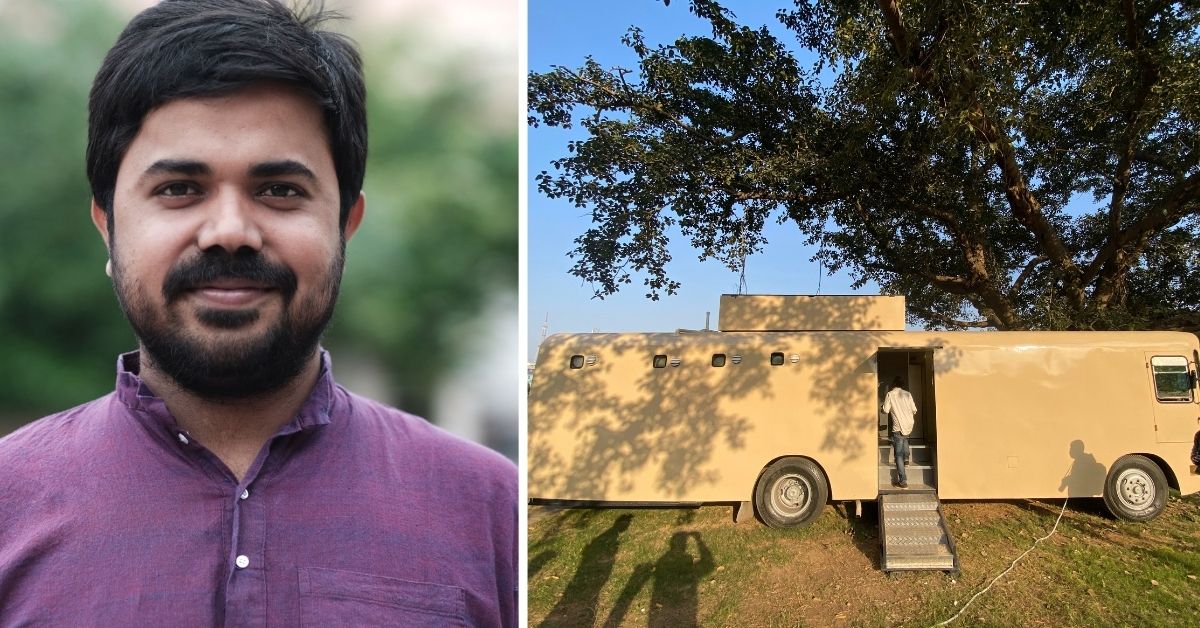
In 2018, when Diptendu Roy stepped into a room full of budding entrepreneurs to pitch his business idea, there were chuckles and muffled laughter all around. When he returned to his seat, the well-meaning gentleman to his right asked him why he was so determined to flush his wife’s money down the drain.
This thought remained with Diptendu for a long while. After all, he had quit his well paying job to do something unconventional and was fully relying on his wife to support him at the time.
Once a journalist, he was now pursuing a project that he felt deeply passionate about — making clean public restrooms accessible especially to women travellers along India’s highways.
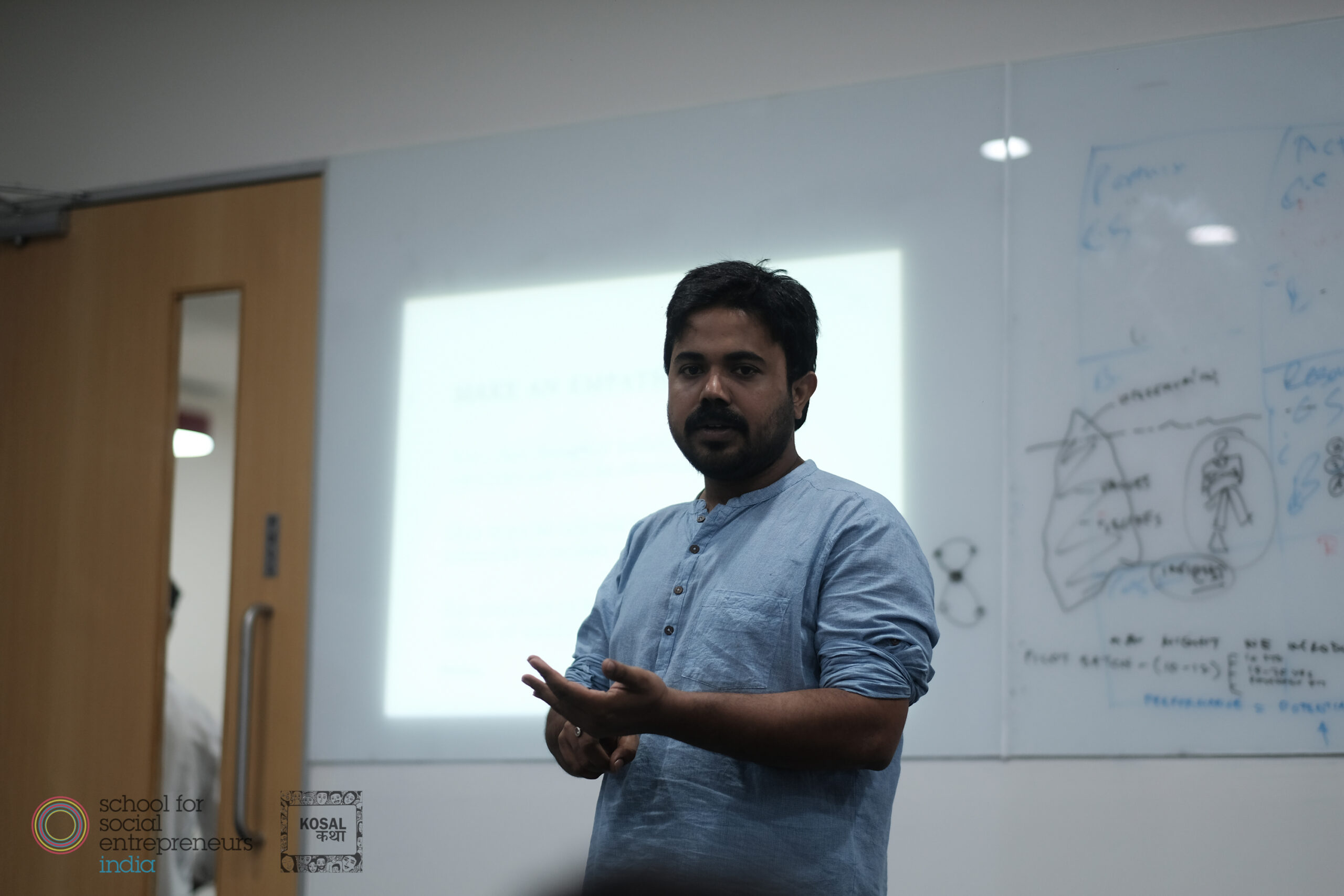
Diptendu says that while he knew that his wasn’t the first startup to think of this idea, personal experiences served as his motivation and laid the foundation for Eloo.
This pilot project is an outcome of a Memorandum of Understanding between self-help group (SHG) Bolpur Mahila Mahasangha, and the Raipur-based startup.
‘How can we make travel comfortable for women?’
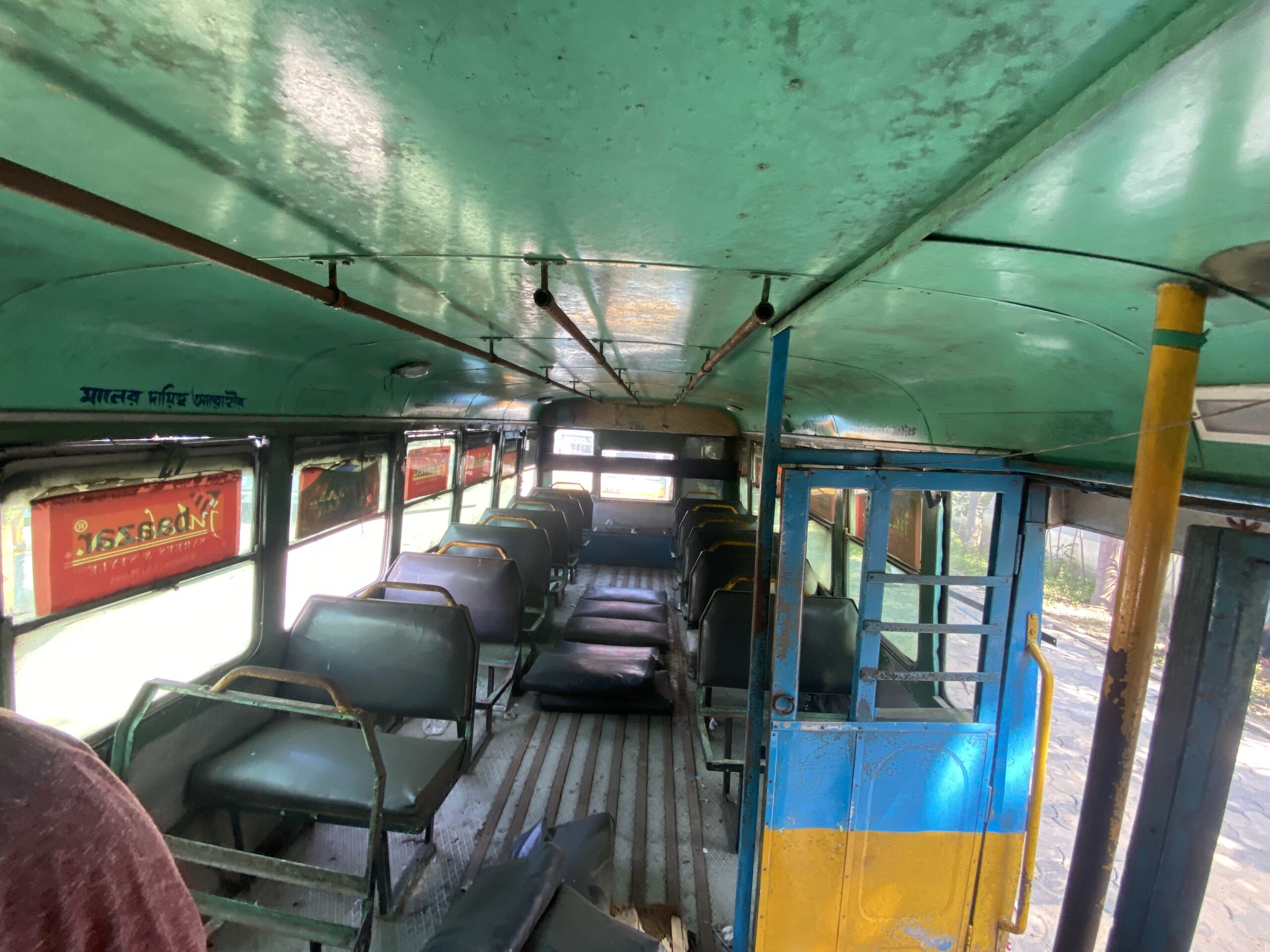
Speaking to The Better India, Diptendu says, “I was travelling with my wife Sunita Chakraborty on the highway in southern Chhattisgarh. For kilometres on end, there was no restroom facility available. I was still able to stop by the roadside and go behind trees, but Sunita faced immense difficulty.”
According to John Hopkins Medicine, holding one’s urine in too long can cause bladder inconsistency. For many women on road trips, the fun element is taken away due to a lack of good hygienic restrooms along the way.
Neha Sharma, a resident of Gurgaon, says, “While I enjoy backpacking and travelling, I have now started thinking twice before I take a road trip. The lack of good infrastructure is such a huge deterrent. There have been several instances when I have ended up with a bad bout of urinary tract infection (UTI) that required me to take antibiotics.”
Many women feel this pinch when they travel. Some choose not to drink water, and some choose to hold their urine in until they reach their destination, both of which cause more harm than one realises.
“Creating a comfortable travelling experience for women along highways was my primary aim in building this startup,” Diptendu says. In 2018, the idea was pitched to the Chhattisgarh government, and he registered for a fellowship programme being facilitated by the state government.
Through several conversations he had with dhaba owners along the highway, he found out that women abstained from drinking water throughout their journey so they wouldn’t need to use the restroom until they reached their destination. “These conversations were very revealing and left me feeling very helpless about the situation women found themselves in,” he says.
How does Eloo work?
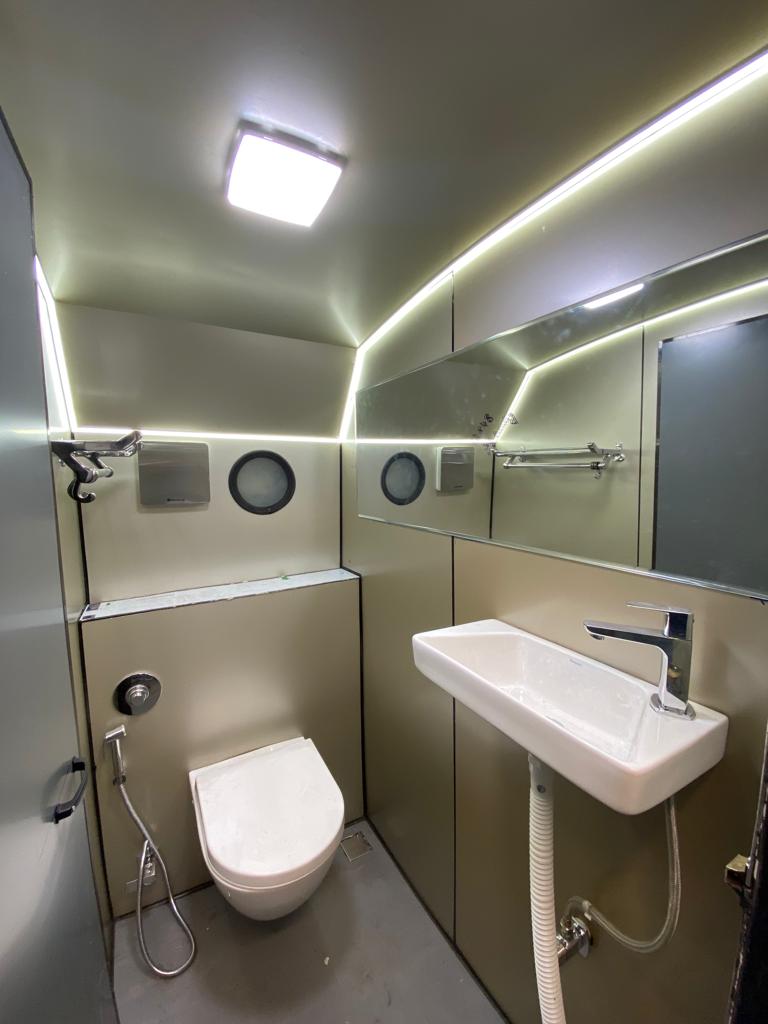
Using old decommissioned buses, the startup launched their first prototype in Shantiniketan. He says, “These restrooms are unique because we are using these old buses to create them, which also means that our set-up costs are significantly cheaper. The restroom in Shantiniketan has three washrooms for women, one gender-neutral washroom, a bathing area, and a changing room, which also doubles as a breastfeeding area.”
The restrooms are managed by the women of Bolpur Mahila Mahasangha. In an attempt to supplement their income, the front portion of the restrooms is used as a pantry. Women from the SHG are encouraged to sell light refreshments and beverages as well.
“We implemented this project under the Mission Nirmal Bangla scheme. The district administration gave us funds for women’s hygiene and sanitation projects,” says Yasmin Sultana, a leader at the SHG.
The current functional restroom has been set up in Shantiniketan, and the next few are being built along the highway in Chhattisgarh.
Ankit Chandak, an interior designer and friend of Diptendu, helped with designing the restroom. Diptendu says, “Without his technical know-how, implementing this project would have been very challenging. He left his regular job and joined me knowing well that this is not as well-paying.”
“This was a personally satisfying project,” Ankit notes. “I saw how many lives we could impact with the implementation. One of the challenges lay in creating a space that would not be suffocating for the user. We had to work with what we had, and ensure that it looked good, had enough space, and was functional.”
Crossing road blocks
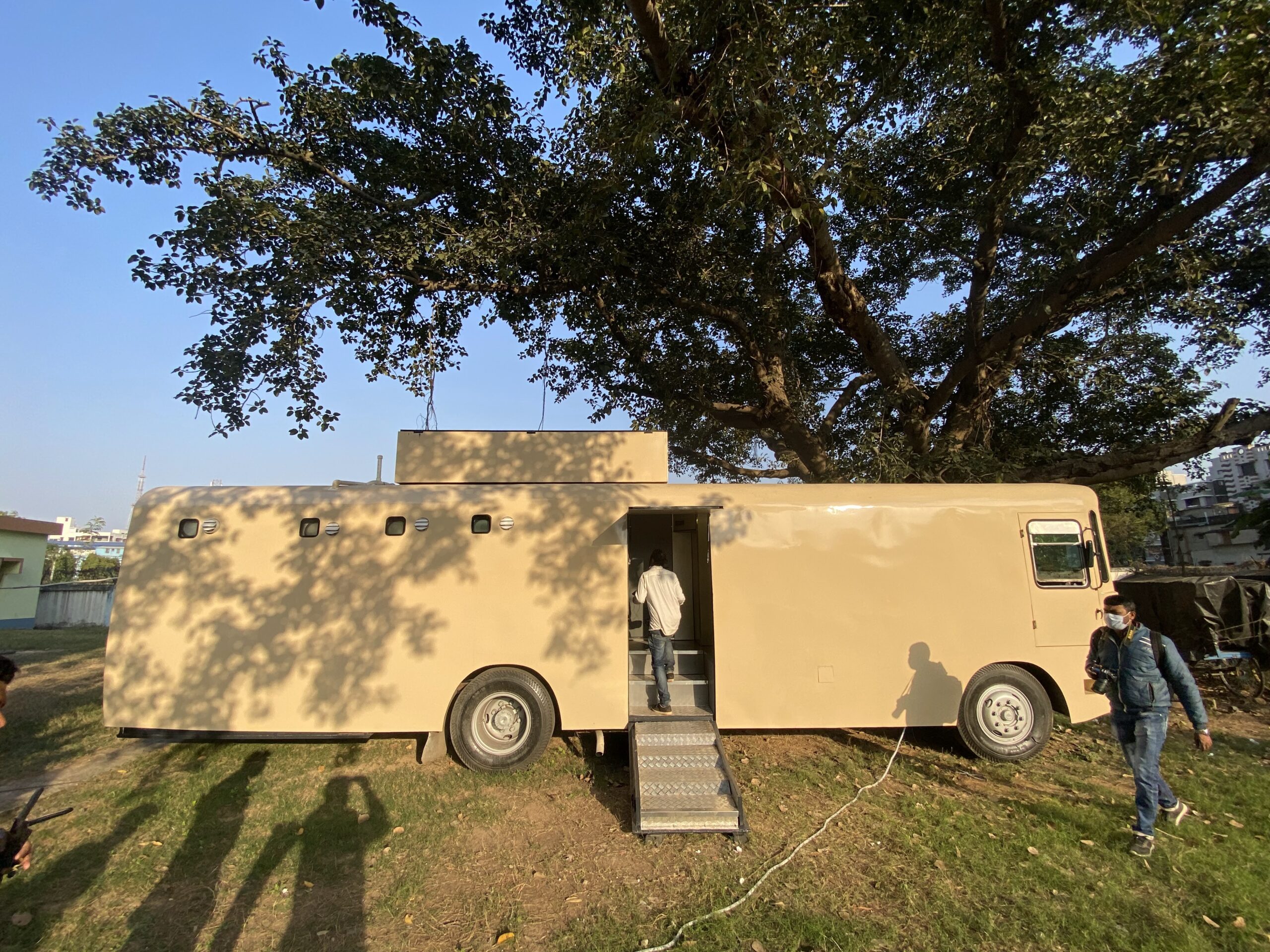
Diptendu acknowledges that many such initiatives have been launched in the past, but relies on the fact that there remains a massive gap in the availability of public restrooms. Regardless, it took him almost two years to implement the idea, and he says there have been many challenges along the way. “Many unexpected things happened along the way — from spending the last two years dealing with COVID-19 to getting married and setting up a home alongside this venture.”
“There were times when my wife’s relatives would ask what I did, and when I explained that I was building public restrooms, it always elicited laughter. No one was able to comprehend my decision of leaving a good private job for this,” he says.
He says his conviction in the larger goal of making travel comfortable for women kept him going. “That, and the support that I got from my wife. She was, in all fairness, running the household. She allowed me to explore and work on this passion project,” he adds.
He recalls another nasty comment he heard while part of the incubator programme. “I was asked how I would explain building restrooms as a job I did to my future children. The manner in which I was asked came as a shock to me.”
These comments and jibes only made his conviction stronger in succeeding. “I also feel very strongly about all jobs being equal. No job is too low for one to do. This is my small contribution in making women travellers, especially on the highway, comfortable,” he says.
Sources:
‘Bladder and Bowel Dysfunction’: Published by John Hopkins Medicine
If you found our stories insightful, informative, or even just enjoyable, we invite you to consider making a voluntary payment to support the work we do at The Better India. Your contribution helps us continue producing quality content that educates, inspires, and drives positive change.
Choose one of the payment options below for your contribution-
By paying for the stories you value, you directly contribute to sustaining our efforts focused on making a difference in the world. Together, let’s ensure that impactful stories continue to be told and shared, enriching lives and communities alike.
Thank you for your support. Here are some frequently asked questions you might find helpful to know why you are contributing?


This story made me
-
97
-
121
-
89
-
167











